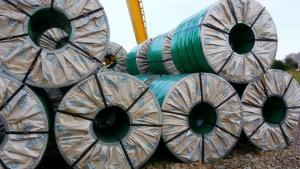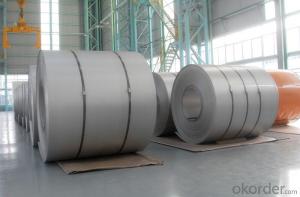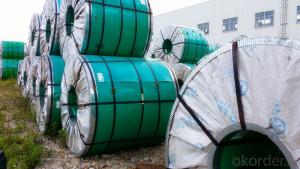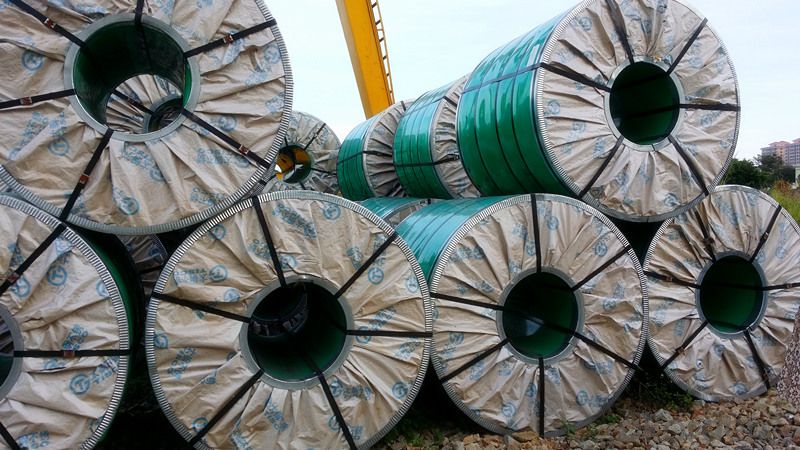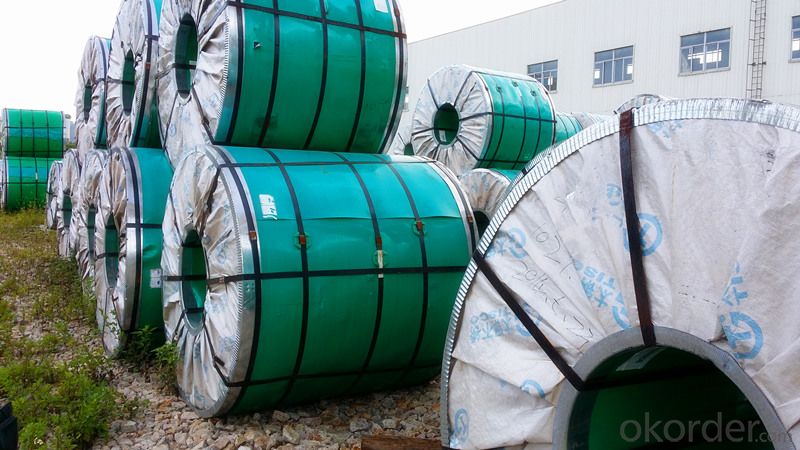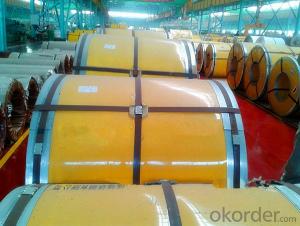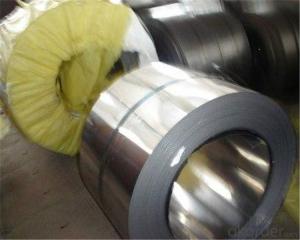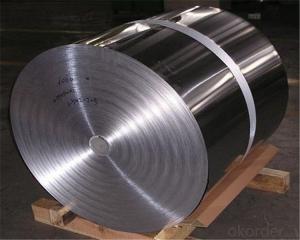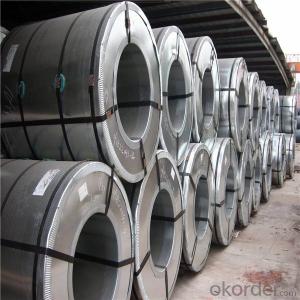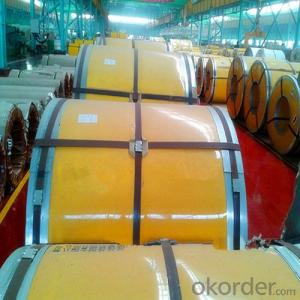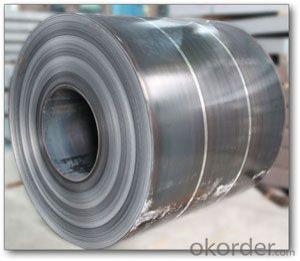Stainless Steel Coil 304 BA/2B Surface Max1200mm in Mills
- Loading Port:
- Guangzhou
- Payment Terms:
- TT OR LC
- Min Order Qty:
- 100 m.t.
- Supply Capability:
- 10000 m.t./month
OKorder Service Pledge
OKorder Financial Service
You Might Also Like
1.Structure of Stainless Steel Coil:
Stainless steel coil is a production which not easy rust, acid resistance and corrosion resistance, Stainless steel coil is a new kind of Austenite stainless steel by used Mn, N replace Ni. so it is widely used in light industry, heavy industry, daily necessities and the decoration industry. Stainless steel coil has good corrosion resistance and hot / cold processing performance, instead of stainless steel products for used in the not high of corrosive environment, such as indoor, inland city outdoor etc.
2.Main Features of the Stainless steel coil:
1) High Quality: Using Latest automated control equipment to ensure the quality
2) Best Price: With most automated equipments to ensure our price is lower than the market
3) Fast Delivery: The delivery date within 20 das after get your order
4) Best Service: Our after-sell service team will help you to slove all the problems about the order
3. 304 Stainless steel coil Images
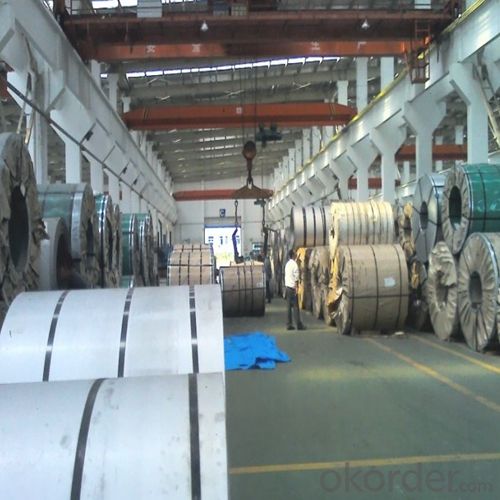
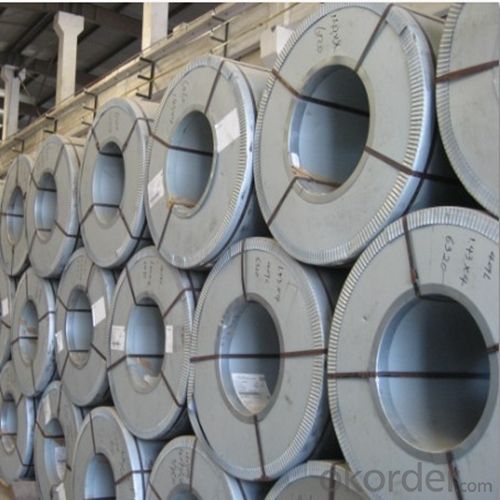
4. 304 Stainless steel coil Specification
Product name: 304 Stainless Steel Coil
Thickness: 0.2mm to 1.5mm
Technical: Cold Rolled
Width: 10mm to 1240mm
Type: 200 Series
Length: As customer's requested
Standard: JIS, SUS
Finish: BA, 2B, 8K, NO.3, NO.4, HL
MOQ: 100 MT
Ship Term: FOB Shenzhen port or CNF import port
Delivery Time: 15 to 20 day after the receive the deposit or LC
Packaging: By wooden pallet, wooden case or according to customer's request
5.FAQ
We have organized several common questions for our clients,may help you sincerely
1) How to guarantee the quality of the products?
2) We have established the international advanced quality management system,every link from raw material to final product we have strict quality test;We resolutely put an end to unqualified products flowing into the market. At the same time, we will provide necessary follow-up service assurance.
3) How about your company?
4) A world class manufacturer & supplier of castings forging in carbon steel and alloy steel,is one of the large-scale professional investment casting production bases in China,consisting of both casting foundry forging and machining factory. Annually more than 8000 tons Precision casting and forging parts are exported to markets in Europe,America and Japan. OEM casting and forging service available according to customer’s requirements.
- Q: What are the different types of edge treatments for steel coils?
- There are several different types of edge treatments for steel coils, including slit edge, mill edge, and deburred edge. Slit edge is the standard edge treatment, where the coil is slit to the desired width and the edges are left with a rough, jagged finish. Mill edge is a smoother edge treatment that is achieved by cutting the coil using a circular saw, resulting in a cleaner edge. Deburred edge is a further refinement of the mill edge, where the sharp edges are removed through a deburring process, creating a smooth, rounded edge.
- Q: In the game RuneScape, the concept of the fictitious metal, Rune has intrigued me. On an equal area AND weight basis (with a possible 10 lb exception) what metal is 256% stronger than steel?
- Alumuniom so that, it is used in Rockets and planes another feature for Alumuniom, that it can bear a huge amount of heat.
- Q: What are the different types of steel coil grades and specifications?
- In the market, one can find a variety of steel coil grades and specifications. These grades and specifications cater to different industry needs and applications. Several commonly used types include: 1. Hot Rolled Steel Coils: These coils are manufactured by heating the steel above its recrystallization temperature and then rolling it at a high temperature. They are often used in applications where dimensional accuracy and surface finish are not crucial. 2. Cold Rolled Steel Coils: Cold rolled steel coils are produced by subjecting hot rolled coils to further processing in cold reduction mills. This process enhances surface finish, tightens tolerances, and increases strength compared to hot rolled coils. They find wide applications in the automotive, construction, and electrical industries. 3. Galvanized Steel Coils: These coils are coated with a layer of zinc to protect them from corrosion. Galvanization improves the durability and longevity of the steel coils. They are commonly used in roofing, fencing, and automotive body parts. 4. Stainless Steel Coils: Made from a combination of iron, chromium, and other elements, stainless steel coils offer excellent corrosion resistance and high strength. They are widely used in industries such as food processing, chemical, and medical, where hygiene and corrosion resistance are critical. 5. High-strength Low-alloy (HSLA) Steel Coils: HSLA steel coils are designed to possess higher strength and improved formability compared to conventional carbon steels. They are commonly employed in structural and transportation applications where weight reduction and high strength are required. 6. Electrical Steel Coils: Also known as silicon steel or transformer steel, these coils are specifically designed for electrical equipment like transformers, motors, and generators. They exhibit low core losses and high magnetic permeability, ensuring efficient energy transfer. 7. Tool Steel Coils: Tool steel coils are specially formulated to possess high hardness, wear resistance, and toughness. They are commonly used in the production of cutting tools, dies, and molds. These examples represent only a fraction of the steel coil grades and specifications available in the market. The choice of the appropriate grade and specification depends on specific application requirements, such as strength, corrosion resistance, formability, and surface finish.
- Q: Can't find it- this is for a physics experiment for youngs modulus done with a steel wire.
- It depends on the type of steel and how the wire was made (e.g. whether it was drawn hot or cold, whether it was heat treated after it was drawn, etc). For mild steel the elastic limit is about 400 MPa. Note this is not the same as the breaking stress for the wire which will typically be significantly higher for a ductile material like steel. If you want to measure a stress-strain curve to find youngs modulus, make sure you measure several points at stresses below the elastic limit - for example try increasing the stress in increments of about 50 MPa.
- Q: How are steel coils used in the manufacturing of automotive bodies?
- Steel coils are used in the manufacturing of automotive bodies as the primary material for forming various structural components, such as body panels, frames, and reinforcements. These coils are typically fed into stamping presses, where they are shaped and cut into the desired shapes and sizes. The strength and durability of steel make it an ideal choice for automotive bodies, providing a solid foundation for safety and structural integrity.
- Q: What are the common challenges faced in steel coil production?
- Some common challenges faced in steel coil production include ensuring consistent quality and thickness of the coil, maintaining efficient production rates, managing inventory and storage of coils, addressing issues related to coil surface defects and handling, and adhering to strict safety regulations. Additionally, fluctuations in raw material prices and market demand pose further challenges for steel coil producers.
- Q: is broken steel the only fallout dlc that will raise the level cap from 20 to 30? also do i have to complete the main quest to play it? which fallout dlc do you think would be the best to get?
- Yes, Broken Steel is the only DLC that raises your level cap. Yes, you have to complete the main quest to play it. It's kind of a prologue to the events of the ending. If you don't have the DLC and complete the game it just ends and you can't play it anymore. With the DLC you'll be able to continue playing. As for which one to get, that's your preference. Most people like the Broken Steel because it has to do with the main story and it raises the level cap - so that's the one I'll suggest to you. I also think The Pitt and Point Lookout are worth getting as well. Mothership Zeta is the one I liked least. I thought it was kind of stupid, to be honest. Operation Anchoarge is a simulation and it's pretty fun, but I don't think it's worth the $9.99.
- Q: How do steel coil manufacturers ensure fair pricing?
- Steel coil manufacturers ensure fair pricing by considering various factors such as production costs, market demand, and competition. They conduct cost analysis to determine the expenses involved in producing steel coils, including raw materials, energy, labor, and equipment. Manufacturers also evaluate market conditions and demand to set prices that align with prevailing rates. Additionally, they consider the pricing strategies of competitors to maintain a fair pricing structure that is competitive yet reflective of their costs and value proposition.
- Q: How do steel coils contribute to energy efficiency in buildings?
- Steel coils contribute to energy efficiency in buildings in several ways. Firstly, steel coils are used in the construction of insulated panels and roofs, which provide effective thermal insulation. This insulation helps to reduce heat transfer, keeping the interior of the building cool in hot weather and warm in cold weather. Additionally, steel coils are often used in the manufacturing of energy-efficient windows and doors. These windows and doors are designed to minimize heat loss or gain, thereby reducing the need for heating or cooling systems and saving energy. Furthermore, steel coils are also utilized in the production of energy-efficient appliances, such as refrigerators and air conditioners, which consume less electricity while providing the same level of performance. Overall, the use of steel coils in building construction and appliances contributes to improved energy efficiency, reducing energy consumption and promoting sustainability.
- Q: What is the role of steel coils in the electrical industry?
- The role of steel coils in the electrical industry is significant as they serve multiple purposes in various applications. Steel coils are used as components in transformers, which are essential for power distribution and voltage regulation. These coils are responsible for transferring electrical energy from one circuit to another, allowing for efficient transmission of electricity across long distances. Additionally, steel coils are utilized in the production of electric motors and generators. They are wound around the stator and rotor to create magnetic fields, which enable the conversion of electrical energy into mechanical energy and vice versa. This process is crucial in various industries, including automotive, manufacturing, and renewable energy sectors. Steel coils also play a role in the production of electrical cables and wiring. They are used to provide strength, durability, and protection to the conductive copper or aluminum wires within the cables. These coils are responsible for maintaining the structural integrity of the cables, ensuring safe and efficient transmission of electricity. Furthermore, steel coils find application in electrical equipment such as solenoids and relays, where they help create magnetic fields to control the flow of electrical current. They are also used in various electrical appliances, including refrigerators, air conditioners, and televisions, where they act as essential components in the functioning of these devices. In summary, steel coils have a vital role in the electrical industry. They are used in transformers, motors, generators, cables, and various electrical equipment, contributing to the efficient distribution, conversion, and transmission of electrical energy.
Send your message to us
Stainless Steel Coil 304 BA/2B Surface Max1200mm in Mills
- Loading Port:
- Guangzhou
- Payment Terms:
- TT OR LC
- Min Order Qty:
- 100 m.t.
- Supply Capability:
- 10000 m.t./month
OKorder Service Pledge
OKorder Financial Service
Similar products
Hot products
Hot Searches
Related keywords
